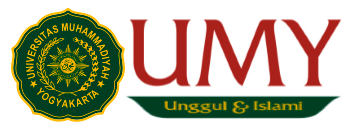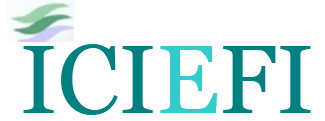Awareness and Perceptions of Muslim Society towards Islamic Banking in the Philippines
Abstract
The aim of this study was to determine and analyse the level of awareness and perceptions of Muslim society towards Islamic banking in the Philippines.Self-structured questionnaires were administered and distributed to 70 employees of some selected offices of the Mindanao State University (MSU), Marawi City and the data were processed and analyzeddescriptively.The results revealed that most of the respondents are aware of the existence of the Al-Amanah Islamic Investment Bank of the Philippines and that interest and uncertainties are prohibited in all forms of business transactions including in Islamic banking. Conversely, they are not aware of Islamic banking products and services and its modes of financing such as musharakah, mudharabah, murabaha and Ijaraah. Furthermore, the study found that most of the respondents perceived that Al-Amanah Islamic Investment Bank of the Philippines has not done enough to promote and market its products and service to the public. The problem of peace and order, and the lack of emphasis placed on the importance of Islamic banking in the country have affected its development. The study also indicated that majority of respondents believed that Islamic banking has a potential positive future in the Philippines. Hence, promotion through policies and marketing strategies is necessary in strengthening Islamic banking in the country.
Keywords
Full Text:
PDFReferences
Abdelrahman, A.Y. (2013).Fundamental Issues in Islamic Economics. Germany: Verlag
Abduh, M., & Idrisov, M. (2014). The Role of Awareness and Perceived Values Upon The Acceptance of Islamic Banking in Dagestan. Journal Of Islamic Banking & Finance, 31(3), 50-60.
Abduh, M., & Omarov, D. (2013). Muslim's Awareness and Willingness to Patronize Islamic Banking in Kazakhstan. Journal Of Islamic Banking & Finance, 30(3), 16-24.
Ahmad, A., & Bashir, R. (2014). An Investigation of Customer’s Awareness Level and Customer’s Service Utilization Decision in Islamic Banking. Pakistan Economic and Social Review, 52(1), 59–74. https://doi.org/http://pu.edu.pk/home/journal/7/Current-Issue.html
Ajzen, I. (1991). The theory of planned behavior. Organizational behavior and human decision processes, 50(2), 179-211
Alamad, S. (2017). Financial Innovation and Engineering in Islamic Finance. UK: Springer International Publishing.
Al-Amanah Islamic Investment Bank of the Philippines (2016). Annual Report CY 2016. Makati: Amanah Islamic Bank
Al-Saati, A. (2003). The permissible gharar (risk) in classical Islamic jurisprudence. Journal of King Abdulaziz University: Islamic Economics, 16(2).
Ayub, M. (2007). Understanding Islamic finance. England: John Wiley & Sons Ltd.
El-Ashker, A. &Wolson, R. (2006). Islamic Economics: A short history. Netherland: Brill NV &Koninklijke
Ergun, U. &Djedovic, I. (2011). Islamic Banking with a closer look at Bosnia and Herzegovina: Knowledge, perceptions. Paper Presented at 8th International Conference on Islamic Economics and Finance. Qatar Faculty of Islamic Studies, Qatar, December 19-21,2011
Fishbein, M., & Ajzen, I. (1975). Belief, Attitude, Intention, and Behavior: An Introduction to Theory and Research.Reading, MA: Addison-Wesley
Gerrard, P., & Barton Cunningham, J. (1997). Islamic banking: a study in Singapore. International Journal of Bank Marketing, 15(6), 204-216.
Gowing, P.(1979). Muslim Filipinos, heritage and horizon. Quezon City: New Day Publishers
Hanna, N., Wozniak, R., & Hanna, M. (2013). Consumer behavior: An applied approach ( 4th ed.). Dubuque, IA: Kendall Hunt
Iqbal, Z., & Mylenko, N. (2016). Developing Islamic finance in the Philippines. Washington, D.C.:World Bank Group
Ismail, S., Lateh, N. & Mohd. Ariffin, N. (2009). Customers’ perceptions on the objectives, characteristics, and selection Criteria of Islamic Bank in Thailand. Gaja Mada International Journal of Business, 11 (2), 167- 189
Jamid Ul Islam, Zillur Rahman. (2017). Awareness and willingness towards Islamic banking among Muslims: An Indian perspective. International Journal of Islamic and Middle Eastern Finance and Management, 10(1), 92-101.
Kaakeh, A., Hassan, M.K., & van Hemmen Almazor, S. F. (2018). Attitude of Muslim Minority in Spain towards Islamic Finance. International Journal Of Islamic And Middle Eastern Finance And Management, 11(2), 213-230.
Karim, A. (2005). Islamic banking: Fiqh and financial analysis. Jakarta: PT Raja GrafindoPersada
Khattak, N.A., & Kashif-Ur-Rehaman (2010). Customer satisfaction and awareness of Islamic banking system in Pakistan. African Journal of Business Management, 4(5), 662-671.
Lingga, A. (2004). Muslim minority in the Lingga, A. (2004). Muslim minority in the Philippines. Paper presented at SEACSN Conference: Penang, Malaysia, January, 2004
Lujja, S., Mohammed, M. O., & Hassan, R. (2018). Islamic banking: an exploratory study of public perception in Uganda. Journal of Islamic Accounting and Business Research, 9(3), 336-352.
Mahdzan, N., Zainudin, R., & Au, S. (2017). The adoption of Islamic banking services in Malaysia. Journal of Islamic Marketing, 8(3), 496-512. doi: 10.1108/jima-08-2015-0064
Ramdhony, D. (2013).Islamic Banking awarenssattitudes and bank selection creteria [Abstract].International Journal of Humanities and Applied Sciences, 2(29)
Sohail, A., M. Hamza, & FasihIjaz. (2014). Perception of individual consumers towards Islamic bank products and services in Pakistan. Journal of Poverty, Investment and Development. 5, 179-182
Souiden N, Rani M. Consumer attitudes and purchase intentions toward Islamic banks: the influence of religiosity. International Journal of Bank Marketing. 2015; 33(2):143-161. Doi:10.1108/ijbm-10-2013-0115.
Tetangco, A., (2014). Islamic Banking and Finance in the Philippines: Opportunities and Challenges. Paper Presented at Islamic Banking and Finance Workshop. Manila
Usmani, M.T. (2005). An introduction to Islamic finance. Pakistan: Maktaba Ma’riful Qur’an
DOI: https://doi.org/10.18196/ijief.1211
Refbacks
- There are currently no refbacks.
Copyright (c) 2019 IJIEF: International Journal of Islamic Economics and Finance

This work is licensed under a Creative Commons Attribution-ShareAlike 4.0 International License.
International Journal of Islamic Economics and Finance (IJIEF)
International Program for Islamic Economics and Finance
Department of Economics
Faculty of Economics and Business
Universitas Muhammadiyah Yogyakarta
Pascasarjana Building, Ground Floor
Jl. Brawijaya (Ringroad Selatan), Kasihan, Bantul
D.I. Yogyakarta 55183, INDONESIA
Official email: ijief@umy.ac.id












1.jpg)